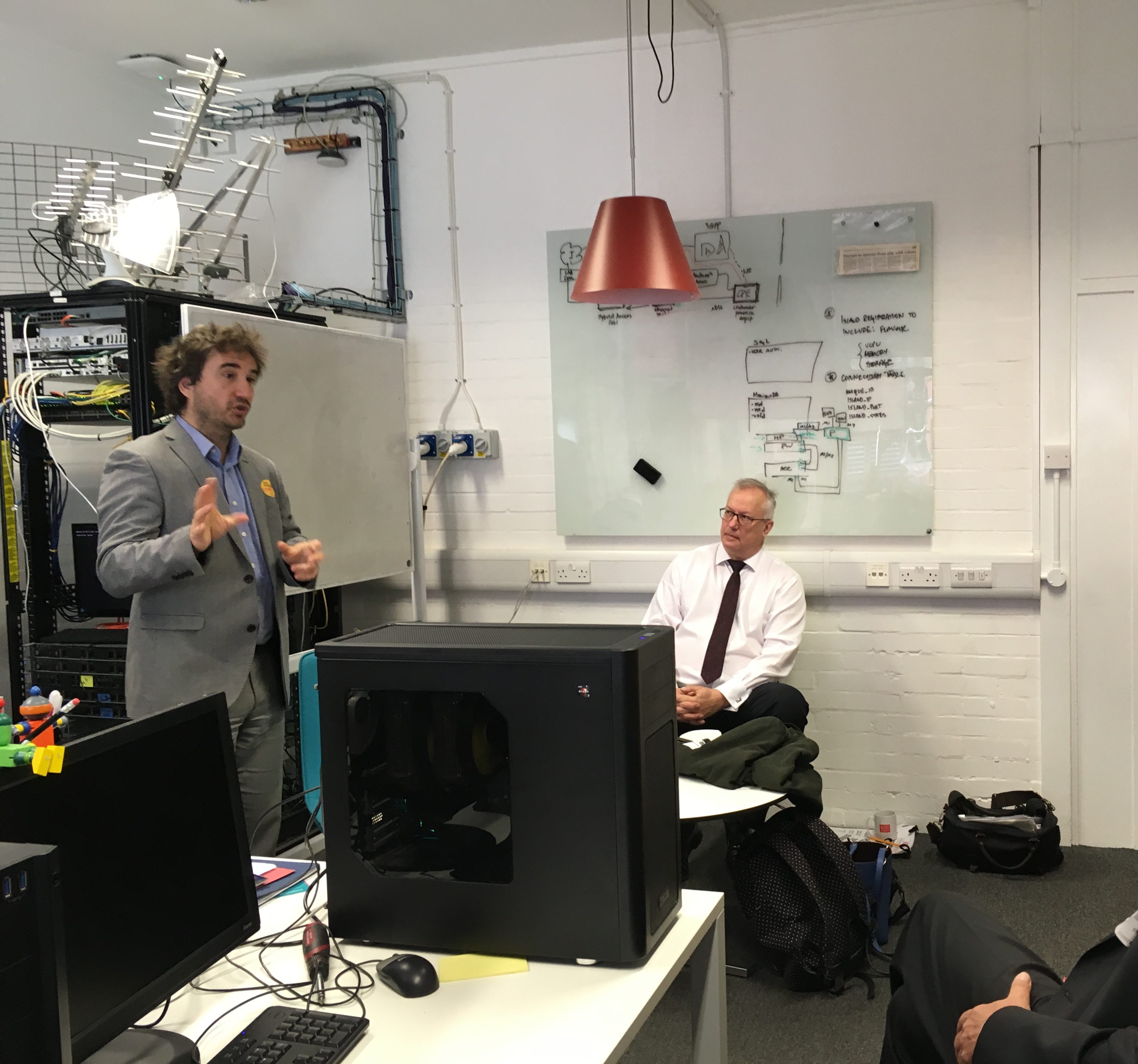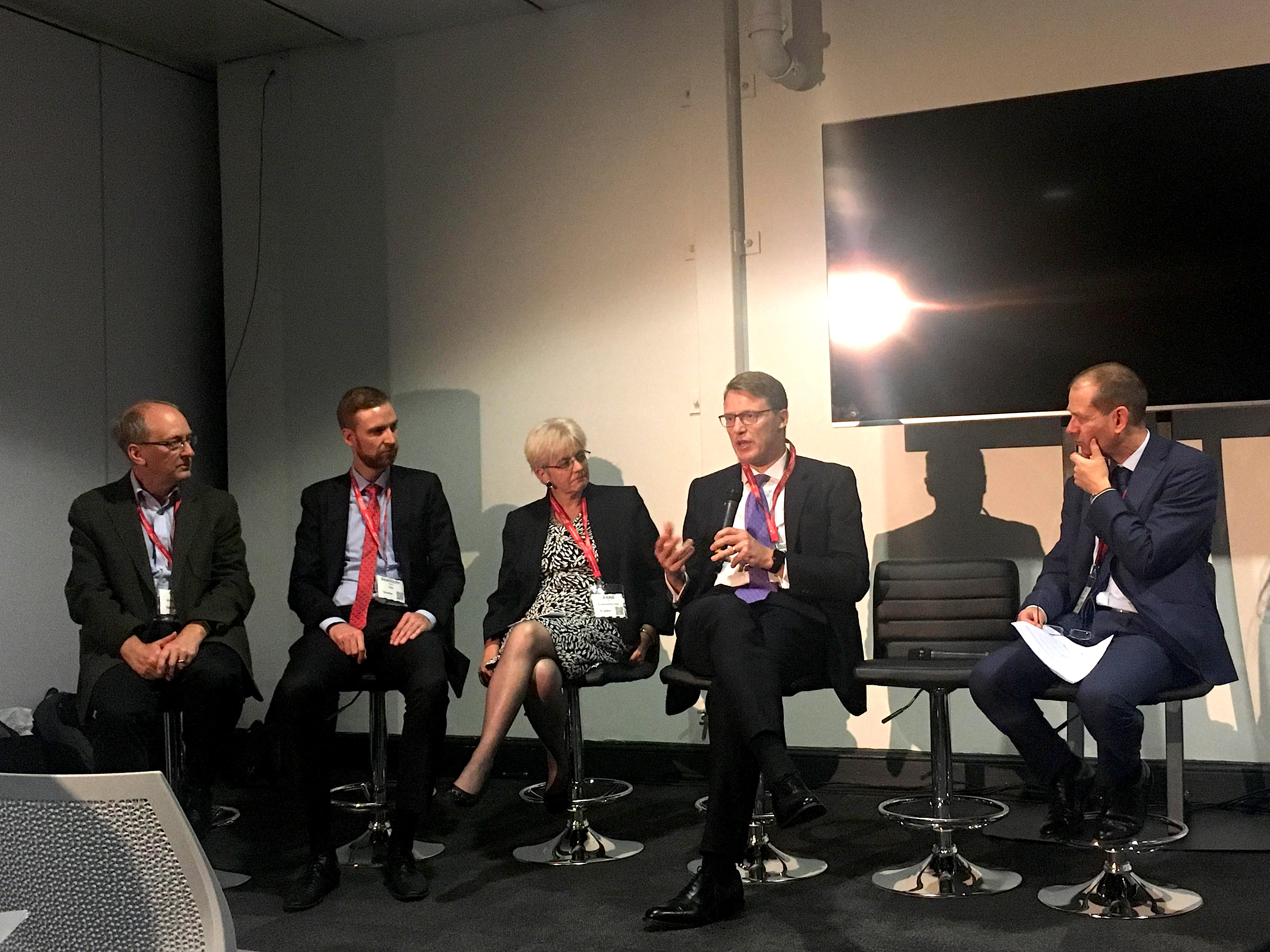‘Digital Infrastructure’ is much more than just building mobile masts and connecting up premises to full fibre broadband. It includes the physical infrastructure, but also the hardware, software, data, process and business models behind it.
All of these work together – and involve developments such as Artificial Intelligence, Blockchain, the Internet of Things, open data, connected and autonomous vehicles, geospatial, smart communities, Transforming Infrastructure Performance and many more! Increasingly, we shouldn’t be separating out telecommunications services from digital services as they are so interrelated.
A cross-sector approach
‘Digital’ touches on, and is part of, every sector. There just isn’t one digital sector – just about every sector is part of the digital economy.
This can be seen with the rapid growth of digital related activities and initiatives across government in this area. For example, digital is an essential element of the Grand Challenges in the Industrial Strategy and the National Infrastructure Commission's National Infrastructure Assessment – their recommended plan of action for the UK’s long term infrastructure needs.
Their recommendations include the provision of digital connectivity suitable for future needs; recognising that “digital services are increasingly important for growth, infrastructure, and quality of life.” The government will be responding to their proposals in their upcoming National Infrastructure Strategy.
It will be important for us all to ensure a joined up approach to these different activities that support a future digital economy. This is most definitely an area where the whole is greater than the sum of the parts.
A good example is our approach to 5G. Over the last 2 years, the IPA has supported the Department for Culture Media and Sport (DCMS) to initiate and develop the £200m 5G Testbeds and Trials Programme.
This programme is about much more than just the deployment of mobile networks. A key challenge is developing the ways in which 5G will enable the development of new services, products and applications in different sectors - for example in manufacturing, health, logistics, smart communities, agriculture and tourism. These are often referred to as ‘use cases’ and are all about what digital services will do. Telecommunications is only one of many elements in these.

A future in 5G
5G is much more than just faster 4G. It is a central enabling technology that forms part of the accelerating digital change in our economy, which impacts on citizens, businesses and public services.
Much of the current public discussion is about the expected deployment of high speed and capacity networks using dedicated 5G spectrum. But this is only one component of 5G. Whether an individual purchases a 5G mobile phone or not, the digital services they interact with on a daily basis will all be increasingly delivered through the network of networks that industry calls ‘5G’.

Historically, there were separate networks that delivered data based services, voice services and TV services. What 5G does is bring the potential to provide all these as a network of networks, based on international standards which provide for a far greater range of capabilities for our future needs - such as AI or autonomous vehicles.
The UK has been a hub for telecoms manufacturing and as we move into the world of 5G, a new importance is being placed on software rather than hardware. At our best, the UK is a leader in the software industry and in areas such as systems integration and security. So we have an opportunity to leapfrog into this new area and develop these high growth areas of the economy.
Recent Comments